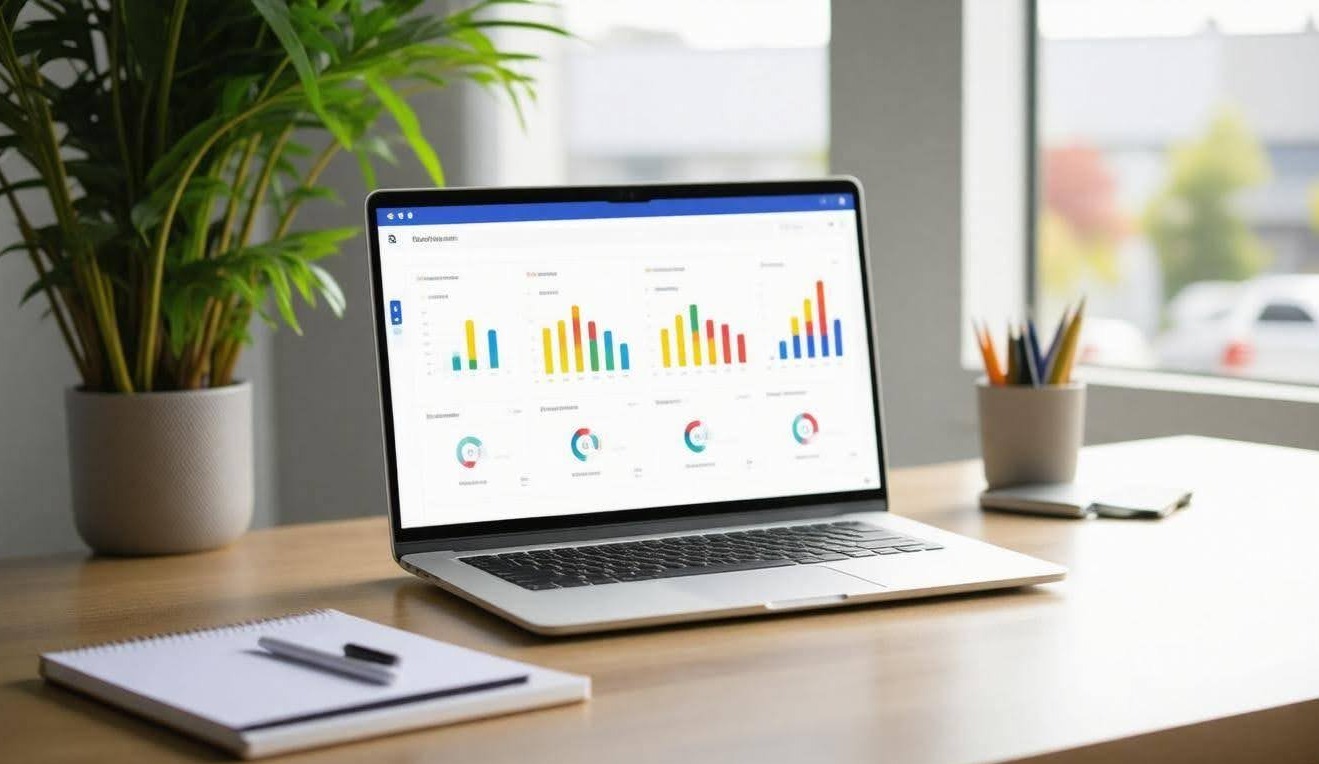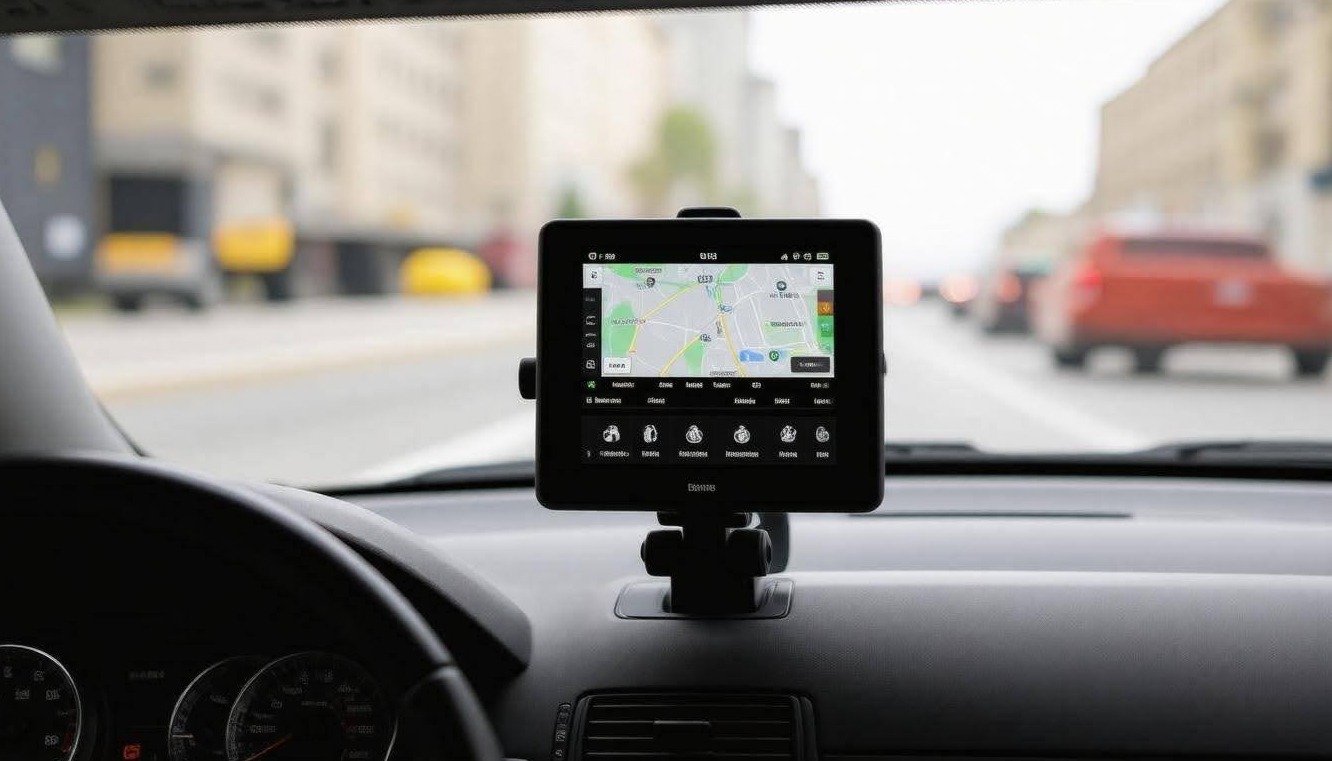GPS Tracking for Fleet Optimization
GPS tracking serves as a powerful tool for businesses seeking to enhance efficiency and cut down on costs related to fleet management. By integrating GPS technology into your operations, you can uncover valuable insights that lead to smarter decision-making and better resource allocation across your organization. This support is invaluable, ensuring that each location operation runs smoothly and efficiently, ultimately benefiting both government and private sector endeavors.It allows companies to know where their vehicles are at any given moment while also understanding how those vehicles are performing in real-time. The integration of telematics systems into fleet operations offers significant advantages for various industries by optimizing logistics, ensuring sustainability, and making wise investment choices.
Improved Route Planning
One of the key benefits of GPS tracking is its capacity for improved route planning. Traditional methods often leave room for human error or rely heavily on outdated maps. However, with a GPS system, businesses can analyze traffic patterns, weather conditions, and road work in real-time. This means less time wasted on inefficient routes and more focus on what really matters: getting products or services delivered on time. Such precision can also reduce the frequency of visits to gas stations, ultimately cutting down on fuel costs.
Imagine a delivery driver frequently stuck in traffic—now picture using live data to reroute them before delays happen. The reduction in unnecessary mileage translates directly into fuel savings—one reason why studies from the American Transportation Research Institute suggest potential savings of up to 20% on fuel consumption. Investing in such technology is a strategic move that benefits the overall efficiency of fleet operations.
For example, with Samsara's GPS tracking systems blended with fuel monitoring capabilities, a small construction company was able to reduce idle time by an impressive 25%, leading to remarkable cost savings. These improvements aren't just anecdotal; they highlight the very real impact GPS can have on bottom-line expenses. Implementing GPS and telematics can thus be seen as a critical investment for enhancing operational productivity.
Reduced Idle Time
Moreover, GPS tracking excels at minimizing idle time, which is another significant contributor to rising fuel costs. Many companies are unaware just how much fuel is burned while vehicles sit stationary, whether waiting for a job or caught in unforeseen circumstances. By implementing careful monitoring alerts for excessive idling periods, businesses can swiftly address situations that might otherwise go unnoticed. These adjustments play a crucial role in promoting sustainability across industries.
A great case in point involves a landscaping company that employed GPS alerts specifically targeting idle times. Their proactive approach resulted in a stunning 12% reduction in fuel costs over just six months! That’s not insignificant, especially when you consider how these savings can accumulate across multiple vehicles in a fleet.
Beyond the obvious benefits of tracking vehicle locations and idling times, leveraging advanced software tools provides actionable insights that can revolutionize how small businesses manage fuel consumption and operational efficiency. Such insights are indispensable for industries constantly looking to streamline processes.
Software Tools for Fuel Management
Fuel management software serves as a lifeline for small businesses seeking to parse through data and develop strategies aimed at improving fuel efficiency. These tools help you understand how usage translates into real-world savings and operational improvements. Imagine having access to a dashboard that not only displays your fuel usage but also connects the dots between driver behavior, route choices, and overall expenses. This kind of insight can be invaluable for any small business owner trying to manage one of their largest expenses.
Among the standout options are tools like FuelManager and Fleetio. These platforms offer comprehensive dashboards that provide real-time updates on various metrics related to fuel usage. For example, FuelManager might show you how much fuel each vehicle is consuming in relation to the routes taken and the drivers behind the wheel. This visibility allows businesses to pinpoint areas of excess fuel consumption—an essential step toward optimizing operations. Users have reported significant reductions in costs; according to studies by the Aberdeen Group, companies utilizing fuel management software often see around a 13% cut in fuel expenses. This percentage can translate into substantial savings over time, especially for companies with sizable fleets. The use of such tools represents a strategic investment that offers long-term advantages.However, there's an ongoing debate within the industry regarding the practicality of investing in full-scale fuel management systems for very small businesses. While some may argue that these systems are too complex or expensive, it's crucial to recognize their potential value. Many software tools provide insights that simpler solutions might overlook. If you have instant access to detailed reports about idling times, patterns of inefficient driving, or fuel purchases, you have the chance to address specific issues rather than making guessing game decisions. These insights can align with your business goals, optimizing both logistics and efficiency through precise application of the data provided.
Just think about how many times you've heard tales of miscommunication leading to wasted hours on the road or horror stories of engines left idling while drivers took breaks. Implementing key software tools can fundamentally shift this narrative and turn inefficiencies into opportunities for savings by leveraging automation for scheduling and dispatch, reducing manual errors, and ensuring streamlined operations.
Of course, every business is unique; what works well for one may not suit another's needs perfectly. Still, tailored solutions are available that can complement smaller operations without requiring significant capital investments or extensive training sessions. For instance, Motive offers AI-powered insights at an accessible price per vehicle per month, making it an attractive option for growing organizations seeking to refine their logistical strategies while achieving their overarching goals.
As you consider software options, integrating these platforms with appropriate fueling devices designed for effective tracking can elevate your monitoring abilities even further. This thoughtful combination of technology and hardware will empower your fleet operation’s efficiency and cost-savings journey, ensuring that every element of your logistics is purposefully aligned.
Understanding the role of various devices that track and log fuel can make a remarkable difference in how small businesses manage their fuel consumption. These devices provide essential insights that help identify inefficiencies, allowing businesses to take corrective actions and align their operations with their efficiency goals effectively.
Devices to Track and Log Fuel Usage
Fuel sensors are specifically designed to deliver precise measurements of fuel levels and consumption rates. They monitor the real-time status of your fuel tanks, ensuring that you always have an accurate idea of how much fuel is available in your fleet. This technology minimizes wasteful practices and tackles problems such as fuel theft head-on, an essential ingredient in maintaining operational integrity.
Fuel Sensors
For instance, a local transport company adopted FuelGuard sensors and began tracking fuel consumption down to the last drop. Not only did they discover discrepancies in their fuel usage that pointed toward theft, but they also managed to save thousands simply by having a clearer picture of where their fuel was going, thus enhancing their logistics strategy.
Onboard diagnostics (OBD) devices are another powerful tool that offers even more granular data on vehicle performance. By plugging into the data port of a vehicle, these devices can relay comprehensive information regarding fuel consumption, engine performance, and alert drivers about potential maintenance needs. This functionality is invaluable for small businesses relying on fleet vehicles, as it aids in achieving automation of monitoring and maintenance processes.
Onboard Diagnostics (OBD)
A noteworthy case involved an HVAC business that implemented OBD devices from Geotab across their fleet; they reported an impressive 18% increase in efficiency. This example underlines the potential of integrating brand-specific technology solutions into your operational framework to meet your business application and logistical goals effectively.
A noteworthy case involved an HVAC business that implemented OBD devices from ***Geotab*** across their fleet; they reported an impressive 18% increase in efficiency. The system alerted them to inefficient driving practices—such as excessive idling or poor acceleration techniques—that were costing them unnecessary fuel expenses.
Using smart tracking devices empowers small businesses not just with better data but also with actionable insights.
These devices, when used effectively, reveal how much fuel you're consuming and unveil patterns in driving behavior that could either be contributing to savings or leading to losses. Moreover, they integrate seamlessly with other management systems, giving owners a comprehensive view of both fuel costs and overall fleet performance.
After setting up tracking equipment, there are various strategies small businesses can implement to enhance efficiency effectively. Understanding how these intelligent devices interact with operational practices can unlock new pathways for cost reduction while boosting productivity.

